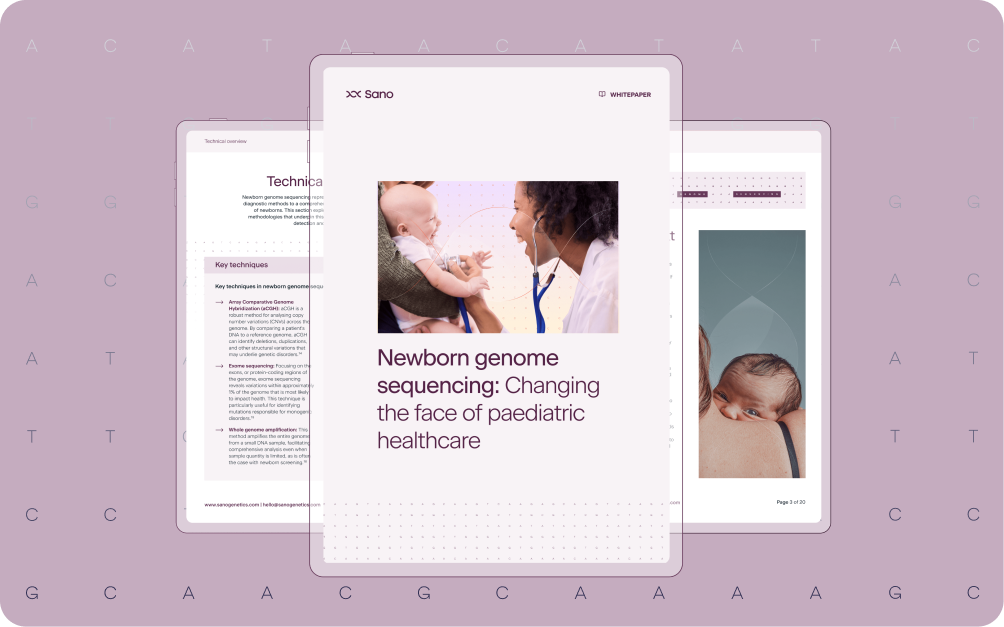The promising horizon of newborn genome sequencing [whitepaper]

Newborn genome sequencing represents a major shift in paediatric healthcare, offering the potential for early detection of genetic disorders and setting the stage for personalised treatment strategies from the very beginning of life.
Traditional screening methods, such as the heel prick test, have served well in detecting certain conditions early. However, they cover only a limited range of disorders. With genome sequencing, we can now identify a broader spectrum of potential health issues much earlier, providing a significant advantage in treatment planning. Our latest whitepaper explores both the challenges and the potential of these advances.
Navigating challenges and looking ahead
While the potential benefits are substantial, the adoption of genome sequencing in newborn screening also presents several challenges. Key among these are ethical concerns related to privacy, consent, and access. We explore these issues in depth, proposing frameworks for integrating new genetic technologies in a manner that respects both individual rights and public health needs.
The future looks promising as we combine genomic insights with new advances like artificial intelligence to refine the accuracy of newborn screenings. This evolution could lead to highly personalised healthcare regimens that begin at birth and are tailored to each individual's genetic makeup.
For a deeper understanding of how newborn genome sequencing could alter the landscape of paediatric health, download the whitepaper below.

